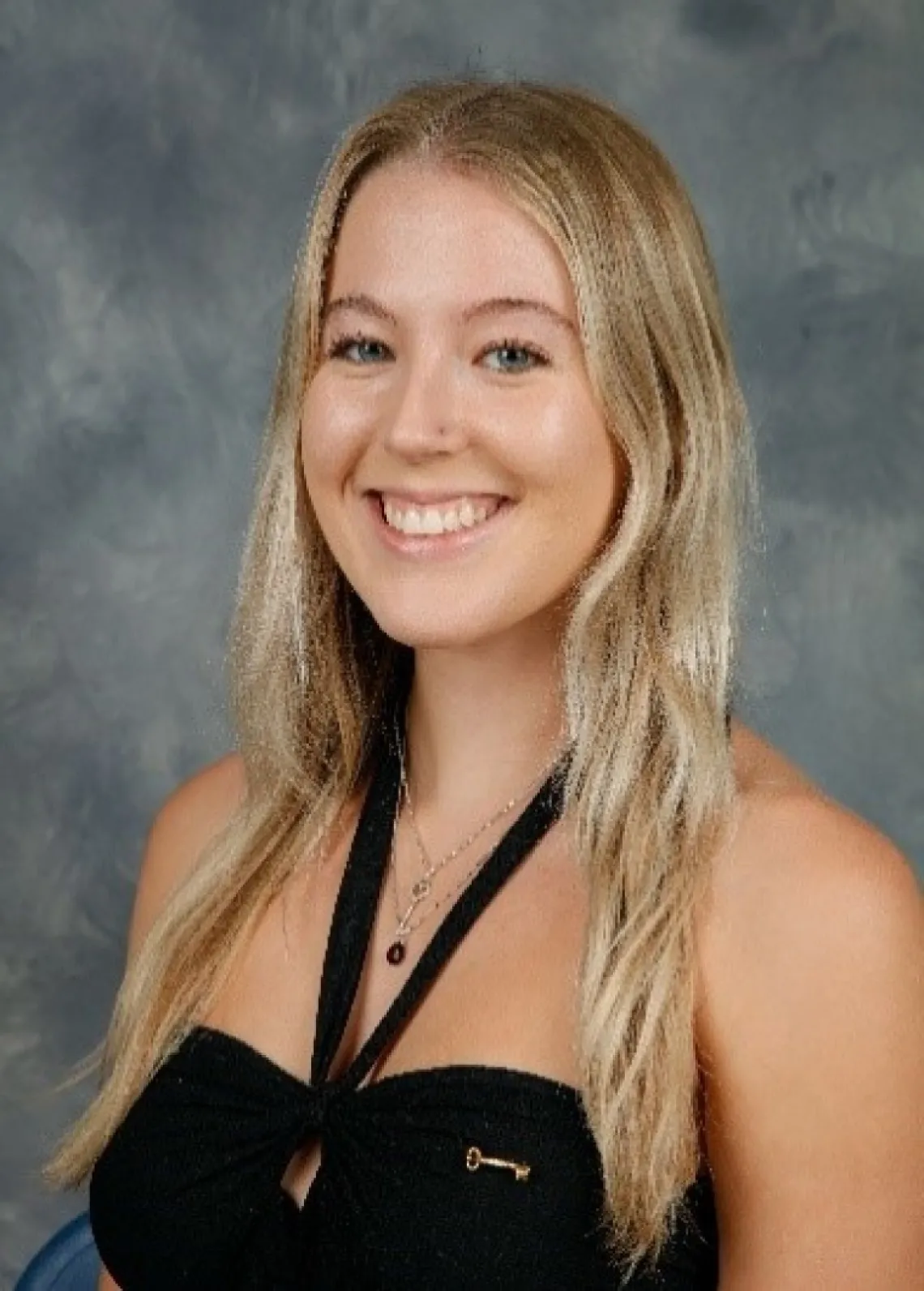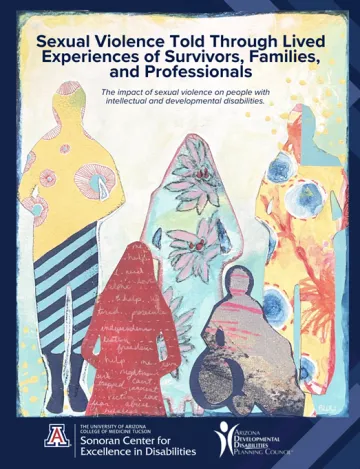The CACTI Blog: Let's Speak Up About Sexual Violence

By Kiley McNeil, 2023-2024 Undergraduate Certificate In Developmental Disabilities
During the Fall of 2023, I joined the Sonoran Center’s Undergraduate Certificate Program in Developmental Disabilities. At this time, I had just dipped my toes into the disability community. My world seemed to widen. My perceptions and understanding of the world, and even my community, followed shortly after. Through the introductory course of the certificate program, I had the opportunity to listen to real life experiences and real work being done in the field. One of the guest speakers that really left an impression on me was Dr. Lynne Tomasa. She came to our class to discuss her research on the high occurrence of sexual violence in the disability community.
Talking about sexual violence is uncomfortable. It feels like there is an unspoken tension in the air—maybe fear. A similar tension can arise in conversations about disability. Disability and sexual violence are two very different things, but happen together more than people realize. This connection is often concealed or overlooked. People with disabilities are encouraged to hide their disability, or parts of themselves that indicate a disability. Sexual violence survivors are similarly discouraged to speak up about their experience. Survivors are encouraged to heal, but to do so quietly, away from the public eye. So, when the two are combined in a sentence, “sexual violence and disability”, it is easy for people to retreat. Dr. Tomasa approached the subject directly, with a clear sense of gentleness, and zero sugar-coating. Her approach and way of talking about the subject was done with grace.
This is when I realized the importance of not only talking about these subjects, but also the importance of the way we talk about these subjects and the language we use. If we are so scared to talk about sexual violence, how can we expect survivors to? In a space where the topic is sidestepped, tiptoed around, or avoided altogether, how can we know what it looks like, how it happens and what it is? The same applies to survivors. How do we expect people to speak up when they are not aware there is something to speak up about? Hearing Dr. Tomasa ask the tough questions while stepping into these uncharted waters with gentleness drew me to her and prompted me to connect with her shortly after. My relationship with the Sonoran Center gave me resources to connect with her and explore ways to get involved. Dr. Tomasa taught me an important message: do not retreat from the uncomfortable conversations, because those are usually the most important to be had. She also taught me that research does not have to be romanticized in the clinical application of academia. Research is for all communities, and should be treated and executed as such.
Once I got in contact with her, she was excited that I was interested in becoming involved with her research. With her most recent project on sexual violence in the disability community coming to a close, I was able to see the behind-the-scenes of her progress on her research manuscript. I felt honored to be given this firsthand look at the research process. I was also given the opportunity to discuss potential next steps with her research. Dr. Tomasa shared that she was interested in creating a trauma-informed care curriculum. Trauma informed care is an approach used in various fields that involves being mindful of all environments and the effects of trauma on people's lives. Within this approach, services, supports, and care are adapted to promote healing and recovery. I was immediately interested in this approach, as it aligned with my own view of how care should be implemented. A trauma-informed care approach lays the foundation for awareness and understanding of potential traumatic experiences, such as sexual violence. This approach also emphasizes the importance of recognizing and understanding signs of trauma. This is especially important within the disability community, since communication may look a little different. Therefore, it's important to understand how people behave and physically respond when they've experienced trauma or sexual violence.
My experience in the certificate program gave me the chance to work towards an approach that faces trauma head on. Projects like these are so important to furthering our understanding of trauma and how that understanding should be implemented in care. Through this project working on a trauma informed care curriculum, I hope that we can create a more inclusive and supportive environment for people affected by trauma, especially within the disability community. By promoting awareness, empathy, and support through trauma-informed care, we can empower survivors in their healing journey. As I continue working with Dr. Tomasa to explore ways to help develop a trauma-informed care curriculum, I am committed to embracing the uncomfortable conversations.

Dr. Tomasa’s report Sexual Violence Told Through Lived Experiences of Survivors, Families, and Professionals is now available.
References Galindo, N., & Lewis-Stoner, M. (n.d.). Creating a Trauma-Informed System of Care: Addressing Individuals, Professionals, and Organizations. Relias. https://www.relias.com/wp-content/uploads/2023/11/23-HHS-4612-EBook-TIC-Update.pdf
The CACTI Blog features the voices of our interdisciplinary trainees and Community Advisory Council members as they highlight diverse images of people with disabilities and provide community information and advocacy on disability issues. Check Out The CACTI Blog
